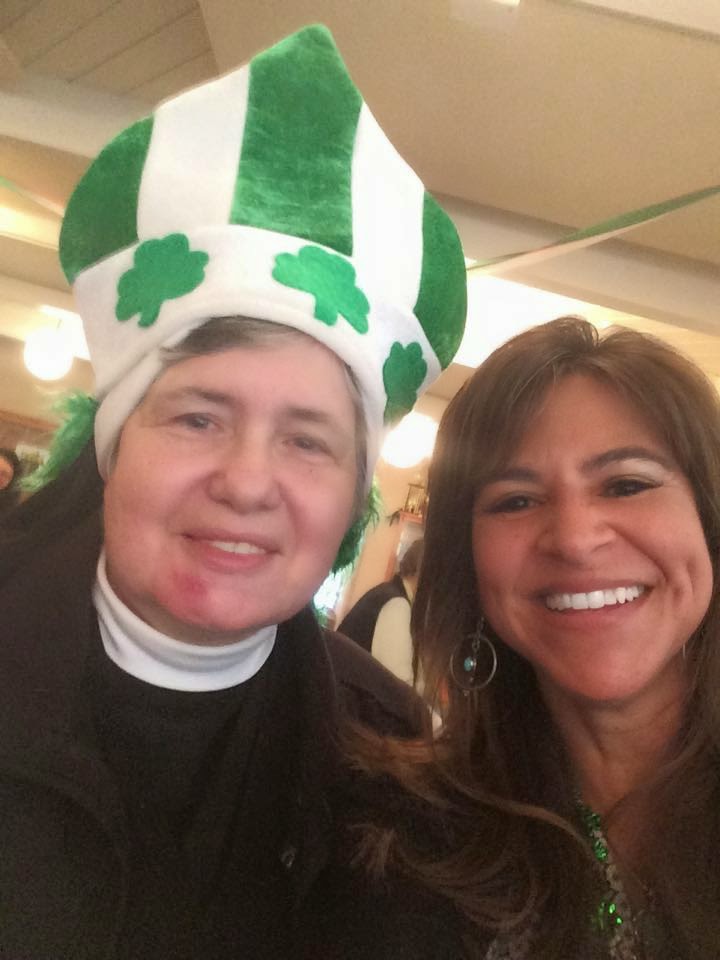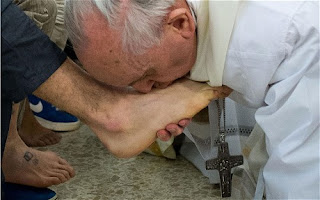Great questions. Thanks. What is striking to me, and has been striking to those I am in touch with, is what this Lenten season has plunged us into. We begin Lent with stories of Jesus being driven into the desert (wilderness) by the Spirit, and of the fundamental choice we are each called to make again and again, not only during this season -- choose life not death! And we are still in Lent -- a Lent which is being deepened and will be extended beyond what we ever expected. I say this because my first suggestion is to stay in touch with this season; it will help contextualize the situation in which we find ourselves and even normalize it to some extent. Above all it will provide a perspective which is more familiar and can make some sense of the novel and unfamiliar circumstances we are now experiencing. Allow the things we talk about all during Lent to be the categories through which you view what is being asked of you by this pandemic: fasting, prayer, and almsgiving.
 Fasting will take many forms as your normal routine and the normal ways of making sense of your life are taken away from you. If you are used to thinking of fasting in terms of food, that may still work, but it will be extended to time with friends, social activities, the availability of necessary items, etc. Prayer will also be extended and deepened for many people in light of the circumstances. I would certainly encourage this in your own daily life. It may be difficult to spend time in quiet prayer if you are not used to it (though I encourage you to try this by starting with limited periods (15 minutes) of simply being quiet with God), but you can sit and consider those people you most love, those you would be spending time with, family, etc and simply allow yourself to be with them as a supportive presence. Let whatever feelings you have for these people come up, let yourself love them, feel grateful for them and all they are for you, and ask God to be with them as they also are suffering in various ways. Almsgiving is certainly something we can deepen and extend during this Lenten period (and beyond it). One way is by refusing to become greedy or engage in hoarding or gouging behavior. Another is by doing errands for those who cannot get out or don't have transportation. Another is by giving what we can to those without housing, adequate heat, food, or hygiene. In suggesting these kinds of things I am aware I am really suggesting nothing more than the Church asks from us every Lent. The Pandemic is not the will of God, but at the same time it can be used as an opportunity for the Spirit to work in our lives.
Fasting will take many forms as your normal routine and the normal ways of making sense of your life are taken away from you. If you are used to thinking of fasting in terms of food, that may still work, but it will be extended to time with friends, social activities, the availability of necessary items, etc. Prayer will also be extended and deepened for many people in light of the circumstances. I would certainly encourage this in your own daily life. It may be difficult to spend time in quiet prayer if you are not used to it (though I encourage you to try this by starting with limited periods (15 minutes) of simply being quiet with God), but you can sit and consider those people you most love, those you would be spending time with, family, etc and simply allow yourself to be with them as a supportive presence. Let whatever feelings you have for these people come up, let yourself love them, feel grateful for them and all they are for you, and ask God to be with them as they also are suffering in various ways. Almsgiving is certainly something we can deepen and extend during this Lenten period (and beyond it). One way is by refusing to become greedy or engage in hoarding or gouging behavior. Another is by doing errands for those who cannot get out or don't have transportation. Another is by giving what we can to those without housing, adequate heat, food, or hygiene. In suggesting these kinds of things I am aware I am really suggesting nothing more than the Church asks from us every Lent. The Pandemic is not the will of God, but at the same time it can be used as an opportunity for the Spirit to work in our lives.Yes, sometimes I feel anxiety in solitude, though not usually because of the solitude itself. I expect a lot of people are going to be experiencing cabin fever. I would urge you to find indoor activities you can get truly engrossed in. If you are a reader then do more of that, if you like puzzles, set a table aside for this and begin a large puzzle you've been waiting on. If you keep a journal (or if it is time to start one!) consider doing that and write about your experience. How about coloring or painting or some other thing you've been wanting to try? What about an online class in something that interests you? There are many of these available including languages, Scripture, history, DIY projects, etc. And, speaking of DIY projects, I should definitely mention those big time cleaning and culling projects we all put off! Most of us have activities we complain we don't have time for. Well, now is the time. Please don't expect to ease all of your anxiety; if you can allow yourself to feel this is normal, uncomfortable as it is, do that. If you need to distract yourself in some way (taking a solo drive* or walk, or a walk with a single friend, watching TV, etc) then do that. Add these things to the essential Lenten elements mentioned above. Some of these can easily become prayer: simply ask God into whatever activity you are undertaking. Do this in a conscious way and renew the invitation or your thanks to God for being with you in this occasionally throughout.
 And of course, find ways to maintain contact with friends, Skype, Zoom, or Facetime conversations, phone calls and texting could be very helpful here. Schedule some of these so you have something to look forward to. Expectations are an important piece of dealing with solitude, especially when one is not used to it. (In prayer it is important not to have expectations re what kind of experience it will be, for instance, but at the same time it can help to build in things you really enjoy at specific times so you can look forward to them as you move through the tedium of the day.) I should add here that it is often mainly the tedium of days in solitude which really gets to folks**; we all experience this. Sometimes we forget that our need for novelty does not satisfy our need for genuine newness. What monastics/hermits know is that our lives with God are filled with genuine (qualitative) newness each day even when there is not a lot of novelty. That requires real patience and trust in God. I have written about this in the past so you might check for articles on this if you are interested. cf., Always Beginners as a start. Getting used to fasting from novelty and opening ourselves to qualitative newness is something this time might allow you (and others) to do -- something that is especially important given the fact that this situation is going to be longer-lasting than we have yet let ourselves realize. As time goes on I may suggest other things to assist with enforced solitude. For now I sincerely hope this is helpful.
And of course, find ways to maintain contact with friends, Skype, Zoom, or Facetime conversations, phone calls and texting could be very helpful here. Schedule some of these so you have something to look forward to. Expectations are an important piece of dealing with solitude, especially when one is not used to it. (In prayer it is important not to have expectations re what kind of experience it will be, for instance, but at the same time it can help to build in things you really enjoy at specific times so you can look forward to them as you move through the tedium of the day.) I should add here that it is often mainly the tedium of days in solitude which really gets to folks**; we all experience this. Sometimes we forget that our need for novelty does not satisfy our need for genuine newness. What monastics/hermits know is that our lives with God are filled with genuine (qualitative) newness each day even when there is not a lot of novelty. That requires real patience and trust in God. I have written about this in the past so you might check for articles on this if you are interested. cf., Always Beginners as a start. Getting used to fasting from novelty and opening ourselves to qualitative newness is something this time might allow you (and others) to do -- something that is especially important given the fact that this situation is going to be longer-lasting than we have yet let ourselves realize. As time goes on I may suggest other things to assist with enforced solitude. For now I sincerely hope this is helpful._____________________
*Except for necessary trips such drives are not allowed in the SF Bay Area. (I admit I don't understand this limitation if one is alone.)
** Though I have not written about this before, I should mention that another issue in solitude is finding that one simply doesn't like oneself very much. I can't address that here of course, but it is something folks should be aware of since it raises all kinds of feelings, irritation, fear, anxiety, anger, etc. For those who simply don't trust themselves or their own inner resources in such a situation as this pandemic, solitude can also be quite difficult. Again, these folks can use this period as a Lenten period of growth and new experience calling for patience and trust. Whether we like ourselves well or not, we will need to trust that our own inner capacities and resources are greater than we might have imagined otherwise. Above all we trust in the love of a God who accompanies us in everything.





























































